Education in Gaza: Classrooms Amid Tents and Virtual Reality Experiments
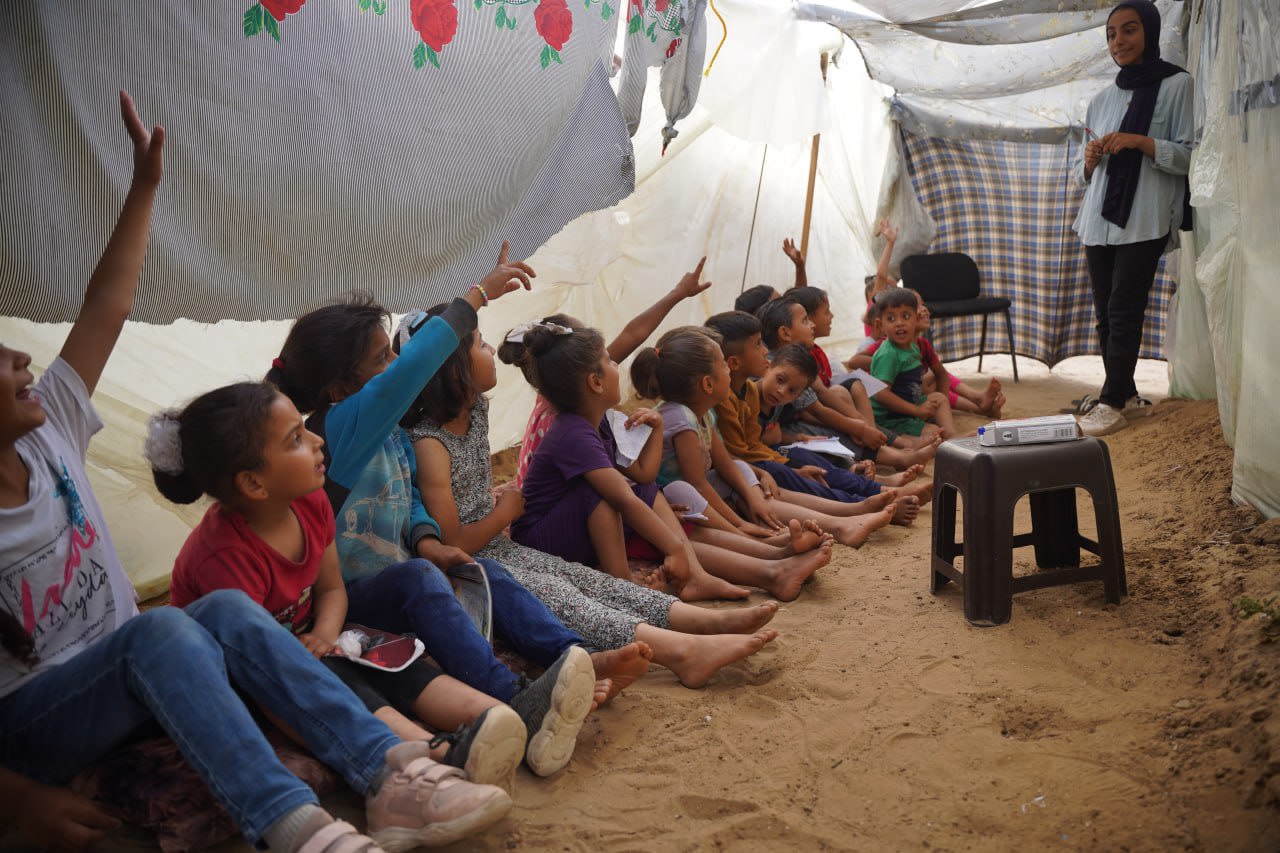
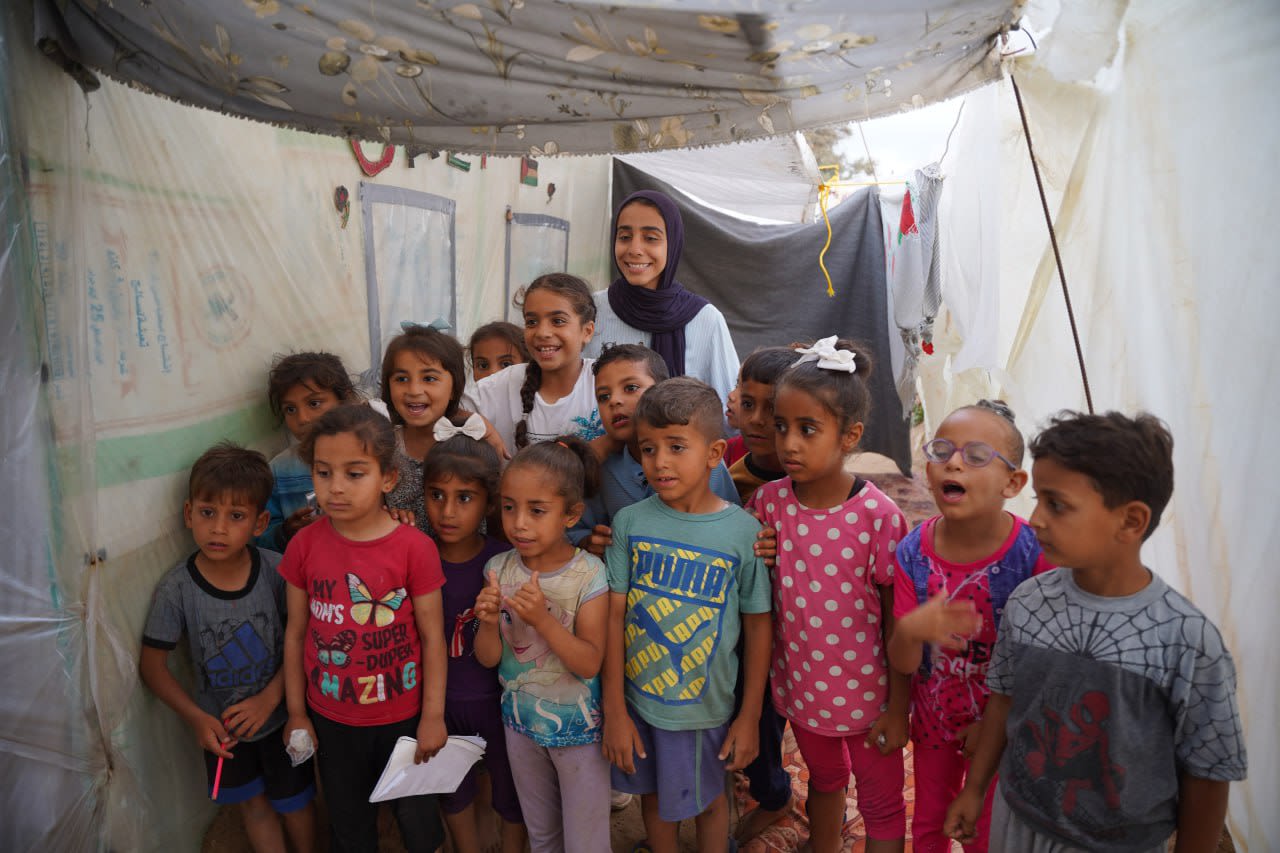
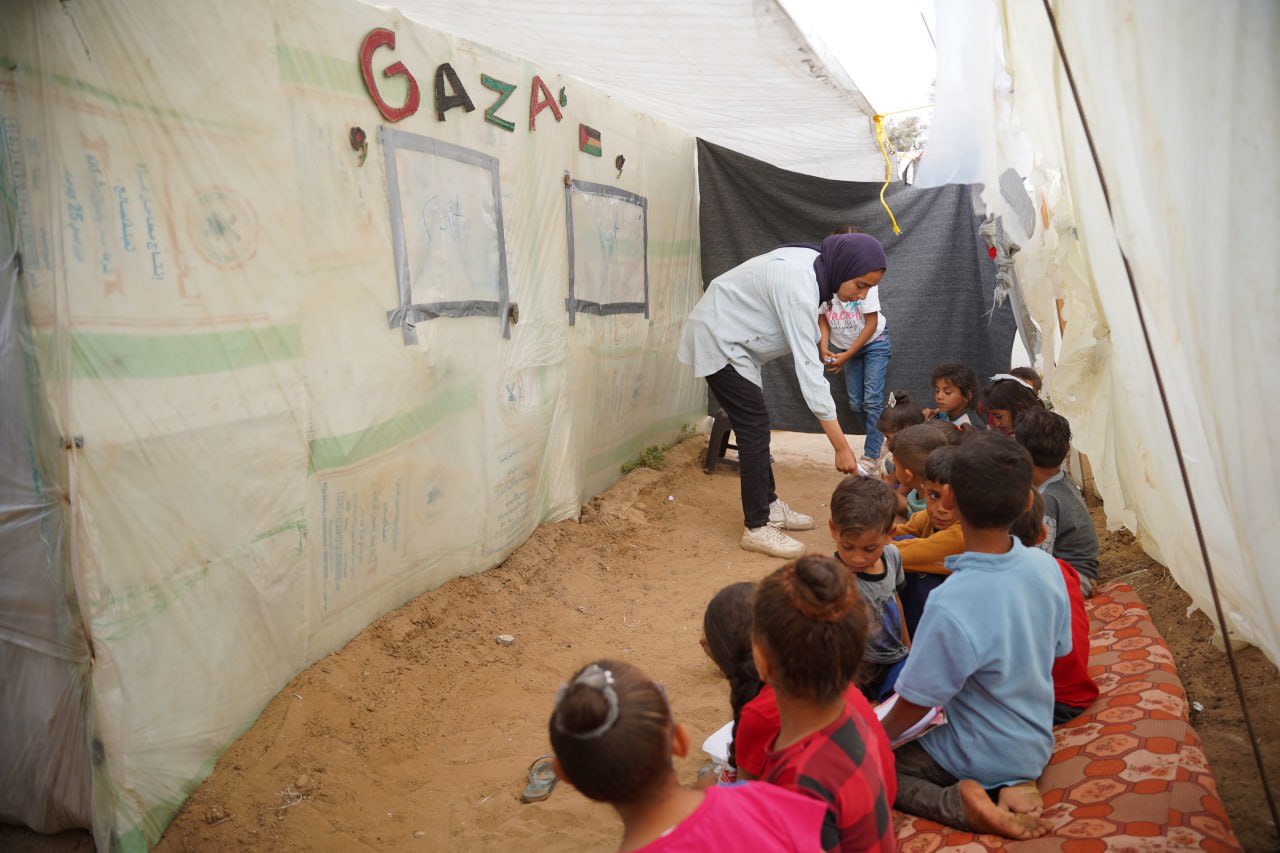
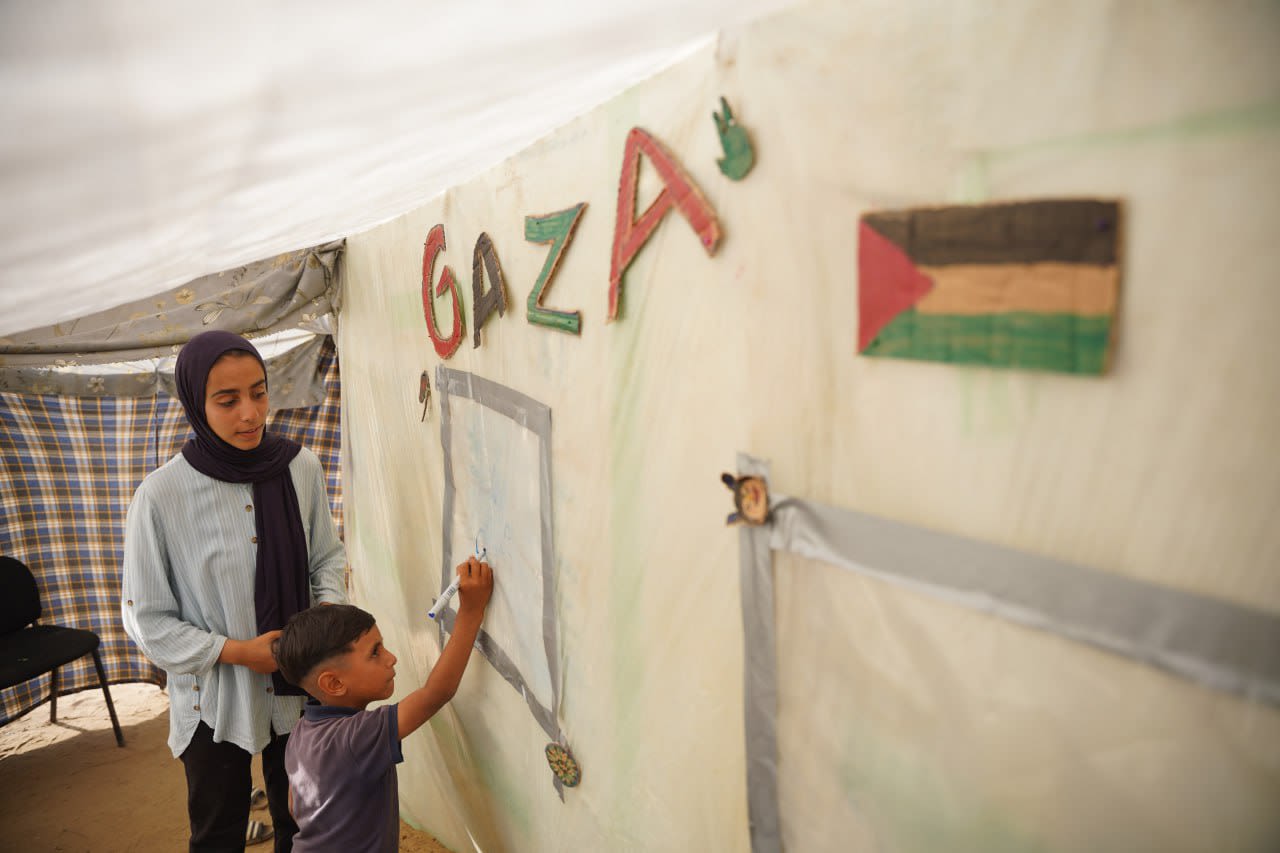
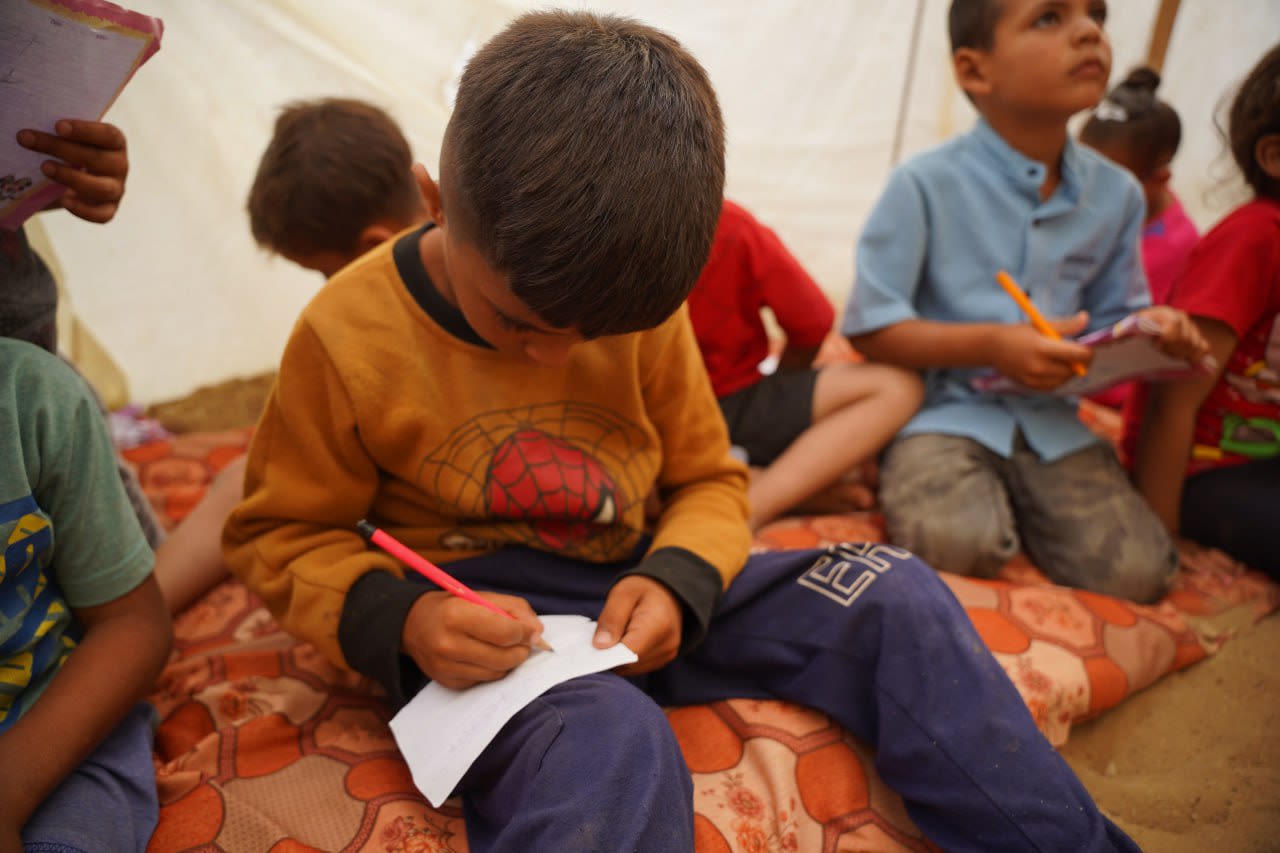
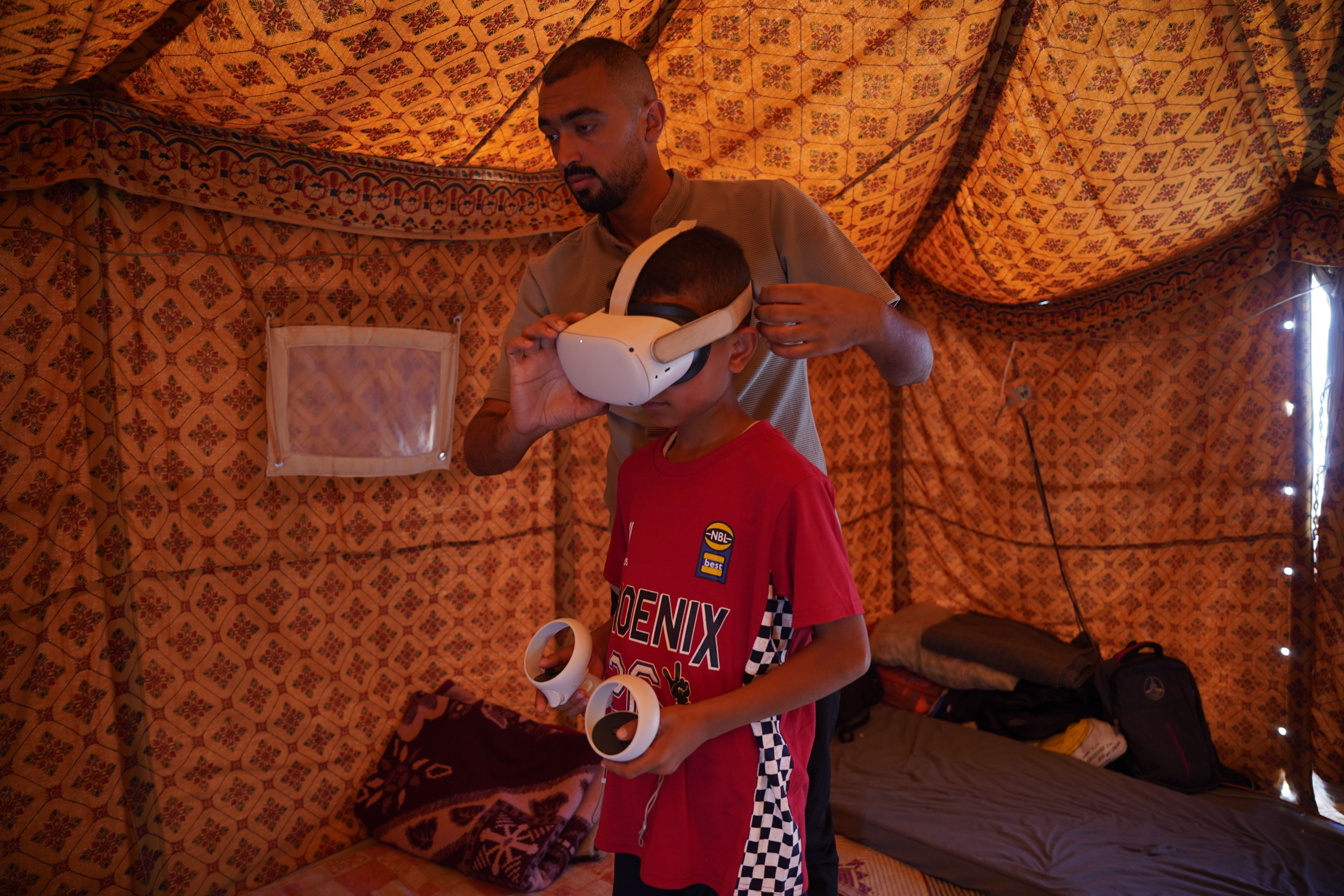
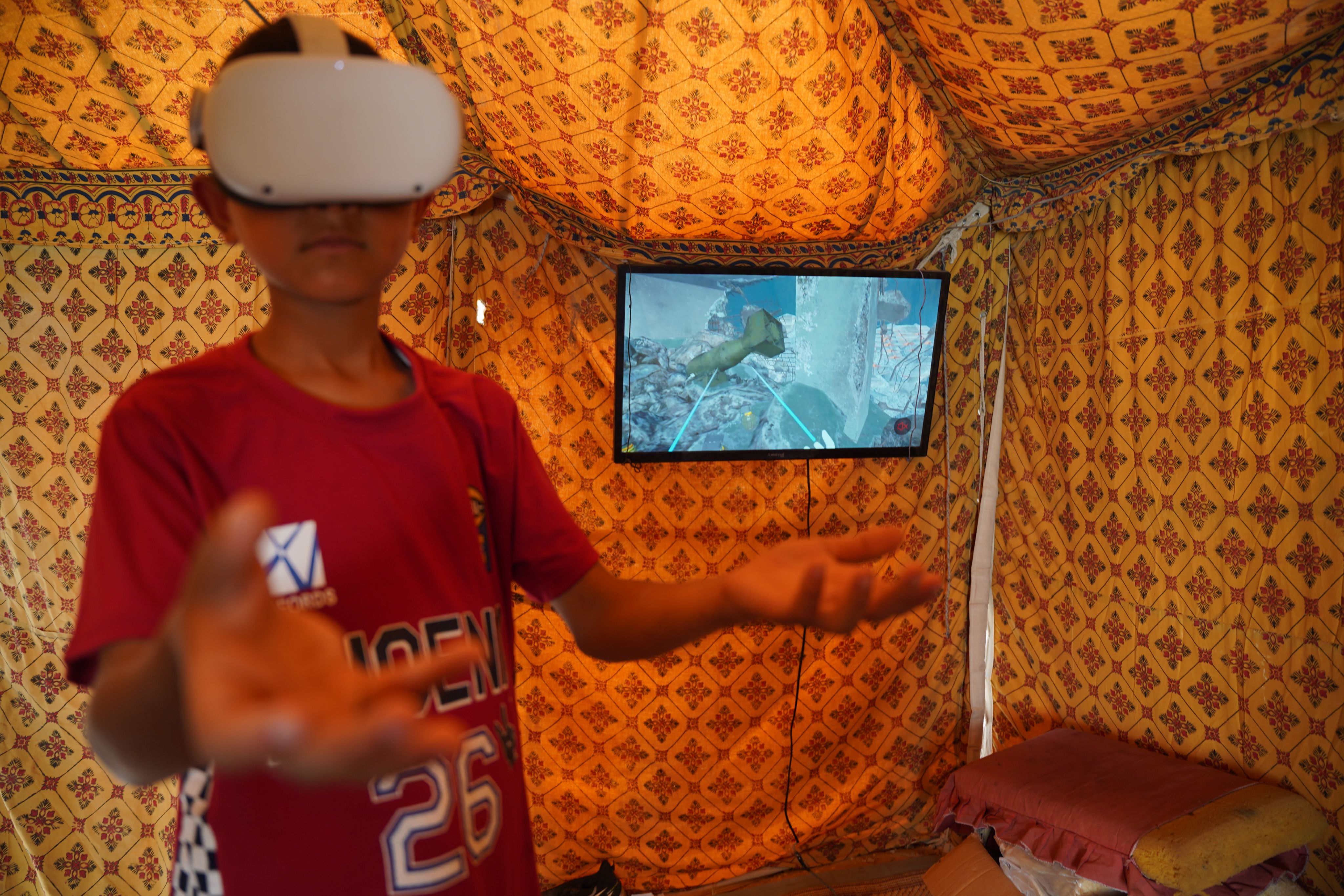
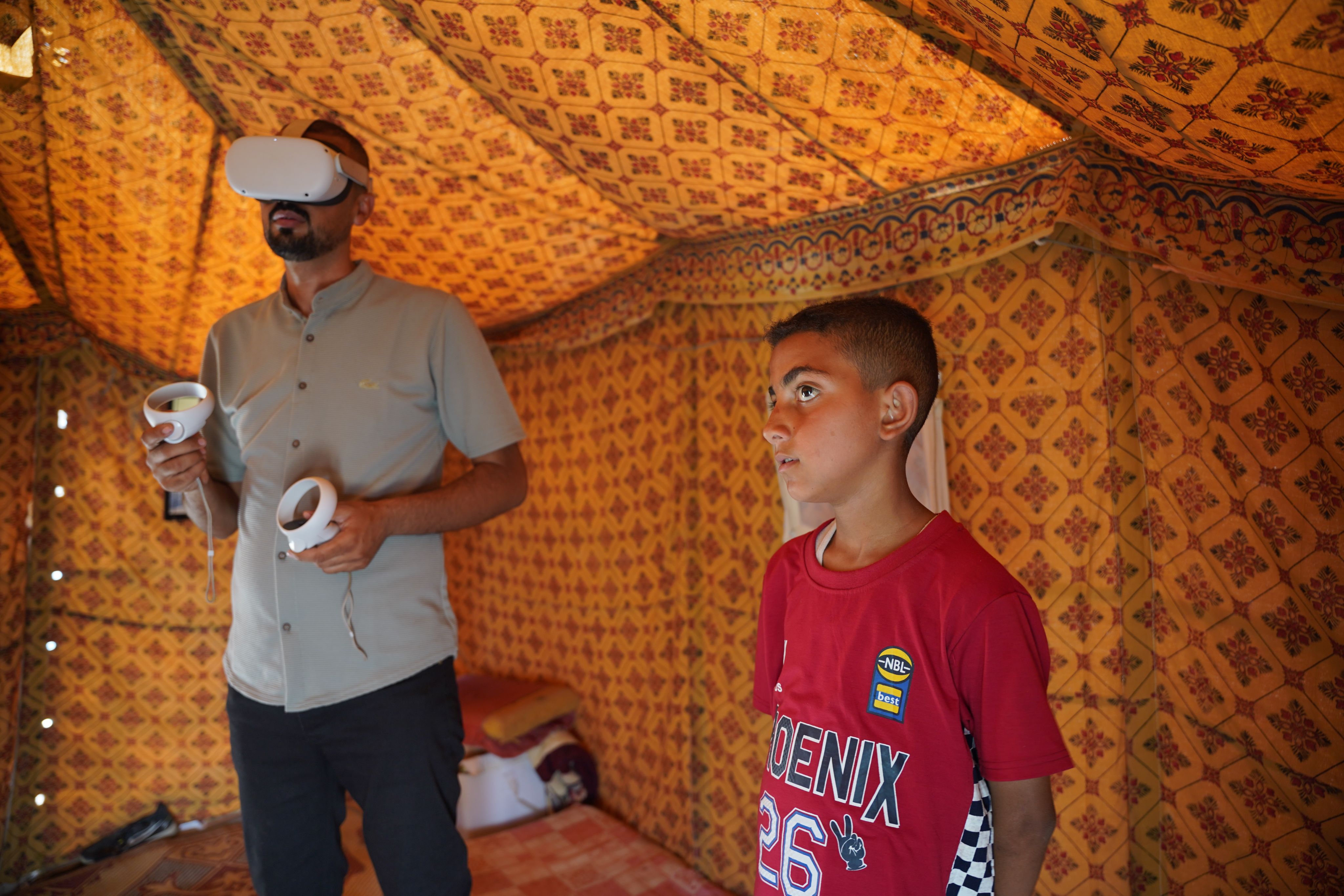
"When a strong explosion occurs, I embrace them all so they don't flee the tent in fear. We hug each other to ease the tension, and then I continue the lesson, overcoming the situation."
In an area no larger than three square meters, amidst coarse sand, Teacher Rama Al-Thabet has arranged a sponge mattress for seating, accommodating 13 students, both male and female. They convene daily at precisely 5:00 PM, commencing their study session.
Rama, an eleventh-grade student, fled with her family from their home in Gaza to one of the camps in Deir al-Balah. She completely halted her education and schooling, as almost everything came to a standstill due to the war.
After months of displacement, Rama decided to transform this space between the tents into a makeshift classroom. Using her own allowance, she purchased pens and pieces of nylon resembling a 'chalkboard' for writing on. Above it, she placed the word 'Gaza,' a dream unanimously shared by the students when asked about their aspirations. This answer was repeated: 'To return to Gaza, and for the war to stop,' which echoed Rama's own dream as the makeshift 'teacher' of the classroom.
Rama decided to dedicate this study session to the children, lasting no more than an hour each day, this session serves as a platform for the students to grasp the basics of the English language. Rama tells us, "The children have forgotten what they learned due to their experiences, and I'm here to remind them of their lessons and stimulate their memory."
The children share a special bond with Rama, evident from the warmth on their faces and their enthusiasm as they head to her class. They arrive before the scheduled time, eagerly awaiting her. Here, they find a respite, taking them away from the war and destruction that surround them, if only for a brief moment.
Even in the midst of this study hour, the din of war is never far away. Rama describes how, at times during the lesson, they can hear the sound of explosions nearby, causing the students to panic in fear.
Rama says, "When a strong explosion occurs, I embrace them all so they don't flee the tent in fear. We hug each other to ease the tension, and then I continue the lesson, overcoming the situation."
At just seventeen years old, Rama appears as a seasoned teacher. She integrates her lessons with competitions and various methods that encourage students to engage in class. She doesn't just teach them; she also offers them small rewards and prizes.
Rama pays special attention to students who struggle with pronouncing English letters. She considers it a challenge she must overcome, and her joy knows no bounds when she witnesses improvement in their speech and pronunciation.
All of a sudden, applause broke out in the classroom, drowning out the constant buzz of Israeli drones, known as "zannana" to Gazans, which fill the air throughout the day. This is how Rama decided to divert the children's attention from the persistent noise that never seems to leave them.
Rama did not receive support from anyone, yet she will continue teaching the children, even with the simplest methods. She tells us, "My wish is to continue my education and to keep helping children with their learning and achieving their dreams, and for all of us to uplift education here in Palestine."
Seven months of war have devastated education in Gaza, with more than 80% of Gaza's schools suffering severe damage or destruction due to the conflict, according to the United Nations.
This destruction has weighed heavily on the people of Gaza, including Marwan Thabet, a father of four children. Despite losing his home, job, and being displaced to the Deir al-Balah camp, depriving his children of education is unbearable for him. Especially considering Palestinians are, as he says, "among the most educated peoples in the world."
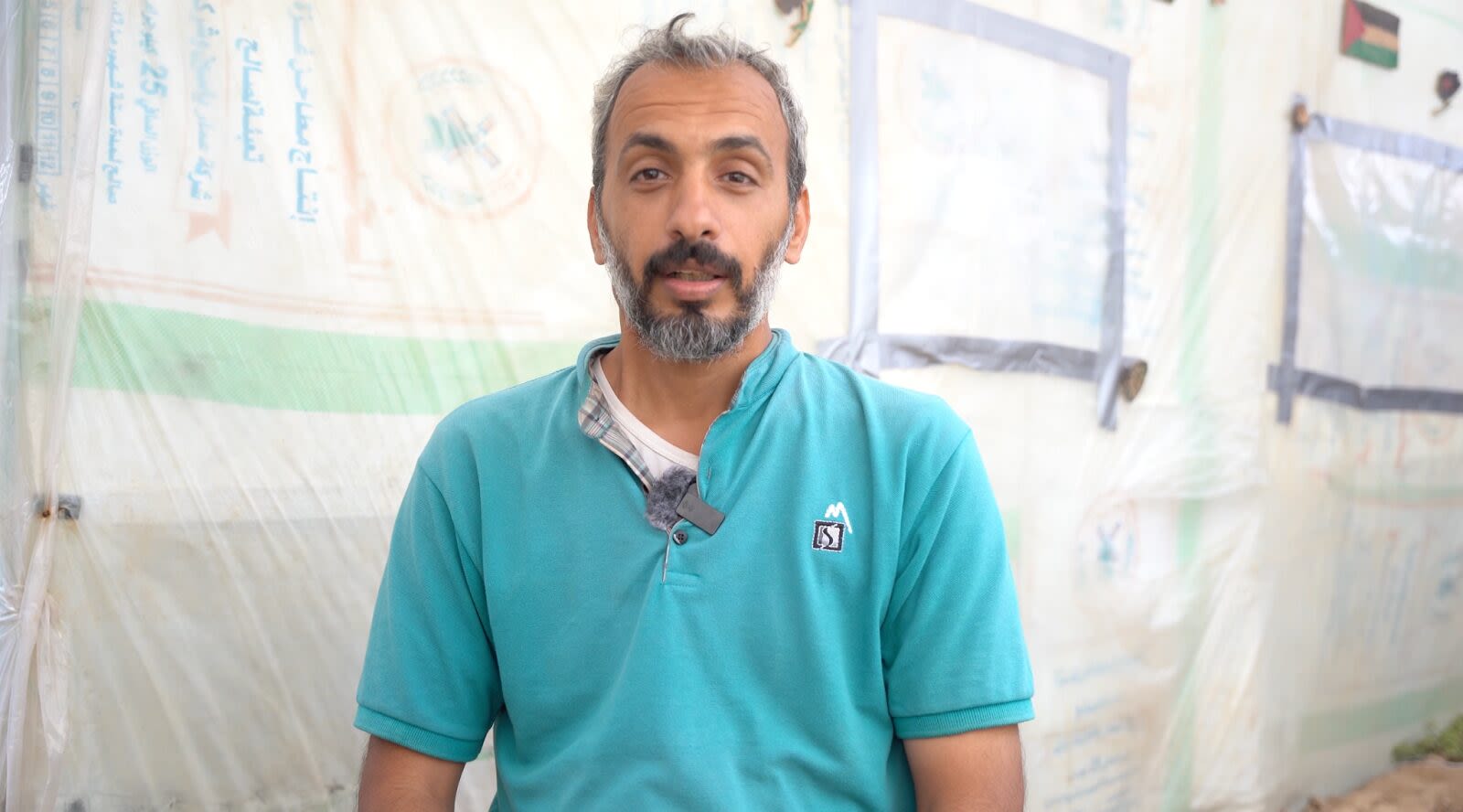
His young daughter, Dana, is one of the students in Rama's modest class, where Marwan found an opportunity to continue his daughter's education. He says, 'My daughter is among the first students to come to this tent. This is the natural state for any child, to be a student, not displaced.'
Marwan believes that children in Gaza have lost everything today—their education and the system they used to live in. He believes it is natural for them to be students in their schools. "This is their life and their natural state, and it is their right to live it."
A statement released by a group of 25 experts from the United Nations last month pointed to "reasonable questioning of whether there are deliberate efforts to comprehensively destroy the Palestinian education system, a practice known as 'school killing'."
And this is indeed Marwan's fear. He hopes to return to his home, life, and job as an e-marketing manager, in short, "returning to the natural state of being human," as he puts it.
His daughter Dana also dreams of returning to her school and reuniting with her teachers, friends, and books. She tells us, "My dream is for this war to end."
Before the war, there were 813 schools in Gaza employing approximately 22,000 teachers, according to the Global Education Cluster, a research group working with the United Nations. Many of these schools were operated by the United Nations Relief and Works Agency for Palestine Refugees (UNRWA).
After the war, more than 85% of those schools were damaged or destroyed, according to a study conducted by the Education Cluster based on satellite imagery. The study indicated that more than two-thirds of Gaza's schools will either need complete reconstruction or extensive repairs before their buildings can be safely used again.
There are over 320 schools used as shelters for displaced people from Gaza, and more than half of them have been directly hit or suffered severe damage due to nearby explosions.
The United Nations has documented at least 5,479 students, 261 teachers, and 95 university professors killed in Gaza since October, in addition to at least 7,819 students and 756 teachers injured.
Escaping from Reality to Virtual Reality
Everyone Here Is Trying to Survive: Each According to Their Means and the Bitterness of Their Experience. The children's problems do not seem to be limited to their education alone. The traumas they have experienced are among the biggest challenges facing them and their families.
For example, Musab Ali, who specializes in electronics and industrial control, strives from within his tent to help children overcome the psychological hardships they have endured.
Amin, Musab's son, suffered an injury that affected him psychologically. Musab employed virtual reality glasses as a therapy for his child, helping him overcome what he had been through. Musab tells us that this experience succeeded with his son, so he decided to share it with others as well.
The project involves a virtual reality experience through the use of virtual reality glasses, allowing children to play in a virtual environment consisting of forests and animals designed by Musab and his team.
Musab, who owned a virtual reality game development company, had the appropriate tools to execute this project, which was based in a tent near the Al-Aqsa Martyrs Hospital in Deir al-Balah.
Children today, after months of war and difficult experiences, need significant psychological support, a need that Musab observed beginning with his own child, who was injured during the war.
He tells us, "Children need to be in a new environment away from war and destruction, and to be separated for some time from the daily life they live in."
According to his experience, he found that the children responded positively, transitioning from a state of poor mental health and complete isolation to gradual improvement, especially as some children had communication problems even with their parents.
Musab and his team began creating an environment with trees and animals that immerses the child in a new environment away from war and destruction, completely separating them from daily life in Gaza of war and destruction.
He says, "After my experiments and work with them, I found that their condition changed, and I can see signs of happiness on them again." The first word he heard from the children was, "Uncle Musab, I don't want to leave the place where I am, just leave me here, because outside there is a continuous war."
Among the programs Musab designed are psychological relief programs and awareness programs for children about the dangers of war remnants and the bombs left by the Israeli army after leaving the area.
Despite the difficulties he faces in this work, including continuous power outages and poor internet connection, the motivation to help children affected by the trauma of war keeps him going.
Musab explains that the idea of raising awareness about the dangers of war remnants comes from painful experiences, as children play with war remnants leading to serious injuries. Through the program, children learn about the effects of weapons and understand the danger they pose. The goal is to accurately simulate the real environment so that children understand the danger tangibly and learn how to avoid risks.
Musab explains that through the program, children enter a real environment, as if they are entering a destroyed house with bombs and missiles. The first reaction of the child when he sees them is usually to touch them, and as soon as he touches them, they explode, giving him a real flash. This is what Musab tried to achieve by designing an environment similar to that completely, so that the child realizes the danger of what could be found among the rubble.
Musab concludes by saying to us, "My message as a Palestinian youth in the midst of conflict: we are a people who love life, and we have the ability to influence and innovate in the world."
